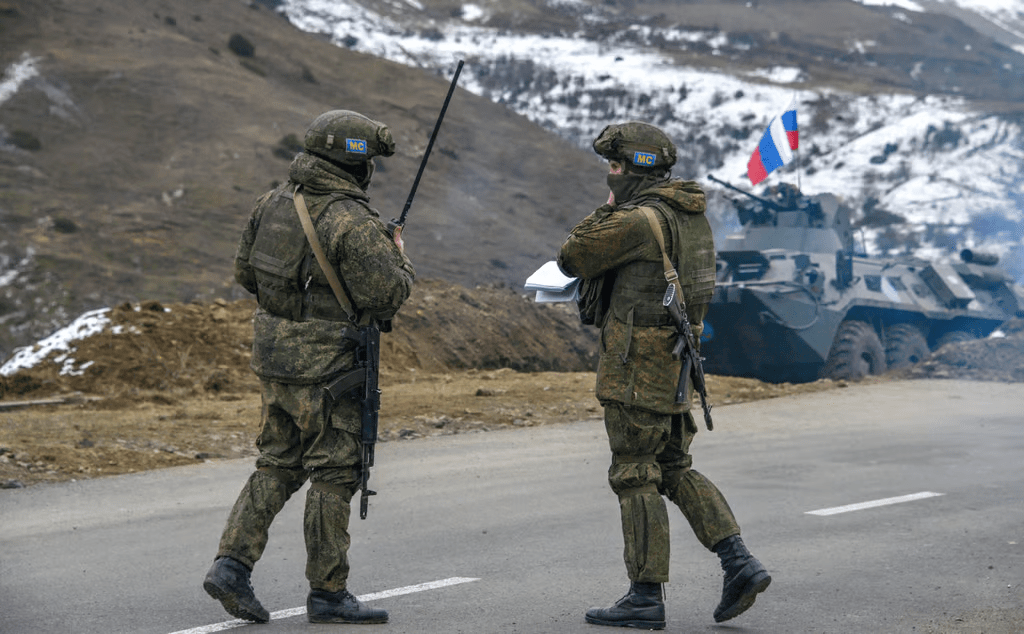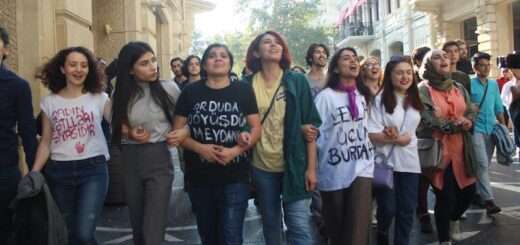Russia will pull out all of its nearly 2,000 troops from Azerbaijan’s Karabakh region, the Kremlin said in a surprise announcement just six months after they watched a forced mass exodus of the region’s Armenian population.
Kremlin Press Secretary Dmitry Peskov confirmed the withdrawal Wednesday, according to Russian state newswire TASS.
Under the terms of a 2020 cease-fire between Azerbaijan and Armenia, 1,960 Russian soldiers as well as hundreds of units of armored personnel carriers and other military equipment were stationed in the region. They had a peacekeeping mandate until at least the end of 2025, but Moscow is directing all available resources into its war on Ukraine.
The mountainous area, situated inside Azerbaijan’s international borders, had been governed by its ethnic Armenian inhabitants as the unrecognized Nagorno-Karabakh Republic since a war which followed the fall of the Soviet Union.
However, the Russian military contingent did not intervene when Azerbaijan began a long-running blockade of the region’s supply lines from December 2022, sparking a humanitarian crisis. Moscow’s forces also retreated from their positions between the two sides in September last year, moments before Azerbaijan began a surprise offensive to take full control of the breakaway region. Virtually all of the 100,000 Armenians living in Nagorno-Karabakh fled their homes in the aftermath.
In December, Valery Gerasimov, the chief of the general staff of Russia’s armed forces, said that “our military contingent continues to carry out tasks as a guarantor of the possibility of building a peaceful life and the return of residents to the region.” But no mechanism has been put in place by which refugees can return home.
News of the pullout comes amid a growing rift has emerged between Armenia and its historic ally Russia. The South Caucasus country recently spurned Moscow by freezing its membership in Russia’s CSTO military bloc before staging joint military drills with the United States. Yerevan is also pushing for closer integration with the European Union.








